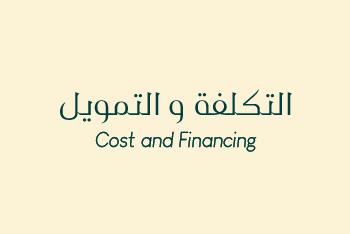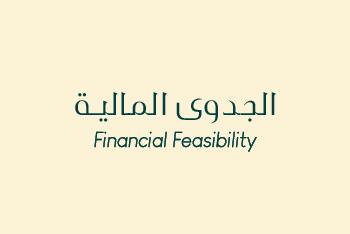
Key Components of Our Economic Feasibility Studies

Market Analysis
- Analyze supply and demand: Determine the availability of demand for the specific type of real estate (residential, commercial, industrial, etc.) and know the competitors in the market.
- Identify the target group: Understanding the demographic and economic characteristics of potential customers.
- Market trends: Analyze current and future trends in the real estate market, including prices, preferred property types, and geographic locations.

Location Analysis
- Geographic location: Selecting a location based on factors such as infrastructure, access to utilities and services, and proximity to public transportation.
- Environmental assessment: Studying the project's impact on the envi

Planning and design
- Engineering plans: Preparing architectural and engineering designs for the project.
- Permits and Licenses: Ensure that all necessary permits and licenses are obtained to start construction.

Cost and financing
- Cost estimation: Determine the total cost of the project including land purchase, construction costs, and administrative costs.
- Sources of financing: Examine available financing options such as bank loans, investment partnerships, and self-capitalization.

Financial feasibility analysis
- Projected revenue: Estimating the potential revenue from selling or leasing real estate.
- Cash flow analysis: Prepare cash flow projections for the project and determine the break-even point.
- Financial performance indicators: Calculate financial viability indicators such as net present value (NPV), internal rate of return (IRR), and payback period.

Risk Assessment
- Risk Identification: Analyze potential risks that the project may face such as market changes, construction delays, and cost increases.
- Mitigation Strategies: Develop plans to mitigate the impact of potential risks on the project.

Timeline
- Project timeline: Create a timeline that includes all phases of the project from start to finish.
- Delivery and follow-up: Define delivery dates and follow-up mechanisms to ensure that the project adheres to the schedule.

Marketing and sales
- Marketing Strategy:Develop a marketing plan to promote the project and attract potential buyers or tenants.
- Sales plans: Identify sales channels and set realistic sales goals.

Final assessment
- Comprehensive feasibility analysis: Evaluate all previous aspects and make a final recommendation on the feasibility of the project.
- Final Report: Preparing a comprehensive report for investors and decision makers.
Get Started Today
Ready to take your real estate investments to the next level? Contact us today to schedule a consultation with one of our portfolio management experts. We'll work with you to develop a customized plan that aligns with your goals and helps you achieve the financial success you deserve.